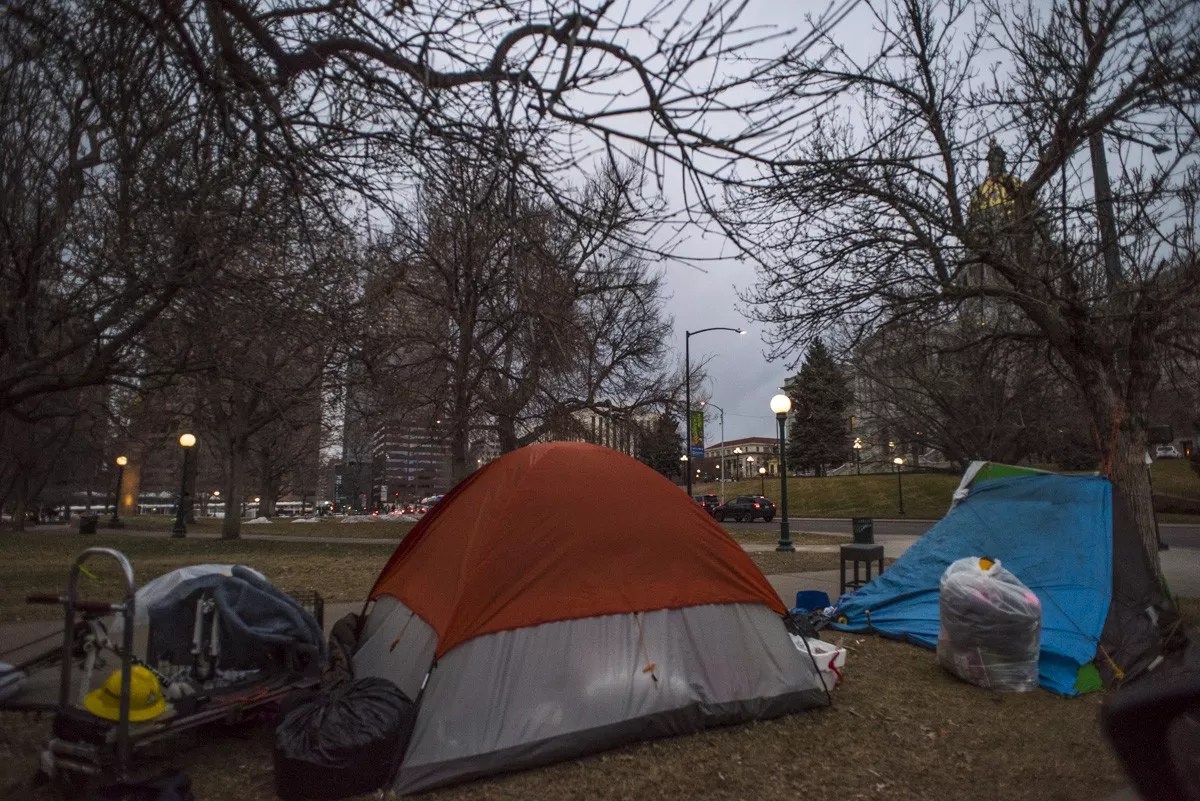
Evan Sem

Audio By Carbonatix
On January 15, city officials dispersed homeless individuals who had been staying at an encampment on the outskirts of Lincoln Park, which is in front of the Colorado Capitol, citing a rat infestation that officials suspected was coming from discarded food. The city stressed that the rat infestation was a danger not only to people walking by the park, but also to those sleeping in it.
Still, people who had been sleeping in the park say the city intentionally linked them to the rats.
“Everybody thinks we’re dirty rat people. That’s fucked up,” says a man who calls himself Possum, who had been staying at the encampment before the city’s action.
Even though officials at the sweep were encouraging residents to move into homeless shelters, Possum and others decided to move a few blocks south, setting up tents on the northern edge of Westword‘s parking lot on West Tenth Avenue.
Possum and his friend Joshua were relaxing outside of Westword‘s office today, January 17. “It’s a hard life out here. It’s not easy,” says Joshua, a Colorado native.
Joshua and Possum describe a more relaxed life in the few weeks after the city’s urban camping ban was declared unconstitutional in late December. “My first thought was, ‘It took ’em long enough,'” Joshua says.
Although the camping ban was declared unconstitutional by outgoing Denver County Court Judge Johnny Barajas, the law is still on the books. Attorneys for the City of Denver filed a notice that they’d appeal the ruling, meaning that the law, which criminalizes using tents or sleeping bags for shelter on public property, was automatically reinstated.
The Denver Police Department, which had stopped enforcing the camping ban for a few weeks, is restarting its enforcement tonight, according to Ryan Luby, a spokesperson for the Denver City Attorney’s Office.
“We’re like public enemy number one. They’re going to war with us,” says Possum. “I’m scared of the police.”
City officials stressed at the cleanup that their dispersal of the encampment at the Capitol, which involved police telling occupants they had to leave, wasn’t a camping ban enforcement action, but was instead addressing public-health risks. The city has a plethora of other laws that it can use to disperse people camping on public land, including health codes and right-of-way ordinances.
The camping ban is facing a second challenge from Denver City Councilwoman Candi CdeBaca, who is shopping a proposal that would repeal the 2020 law. Getting enough support is a tall order, though, since CdeBaca will need nine votes to ensure that the bill can survive an inevitable veto from Mayor Michael Hancock.